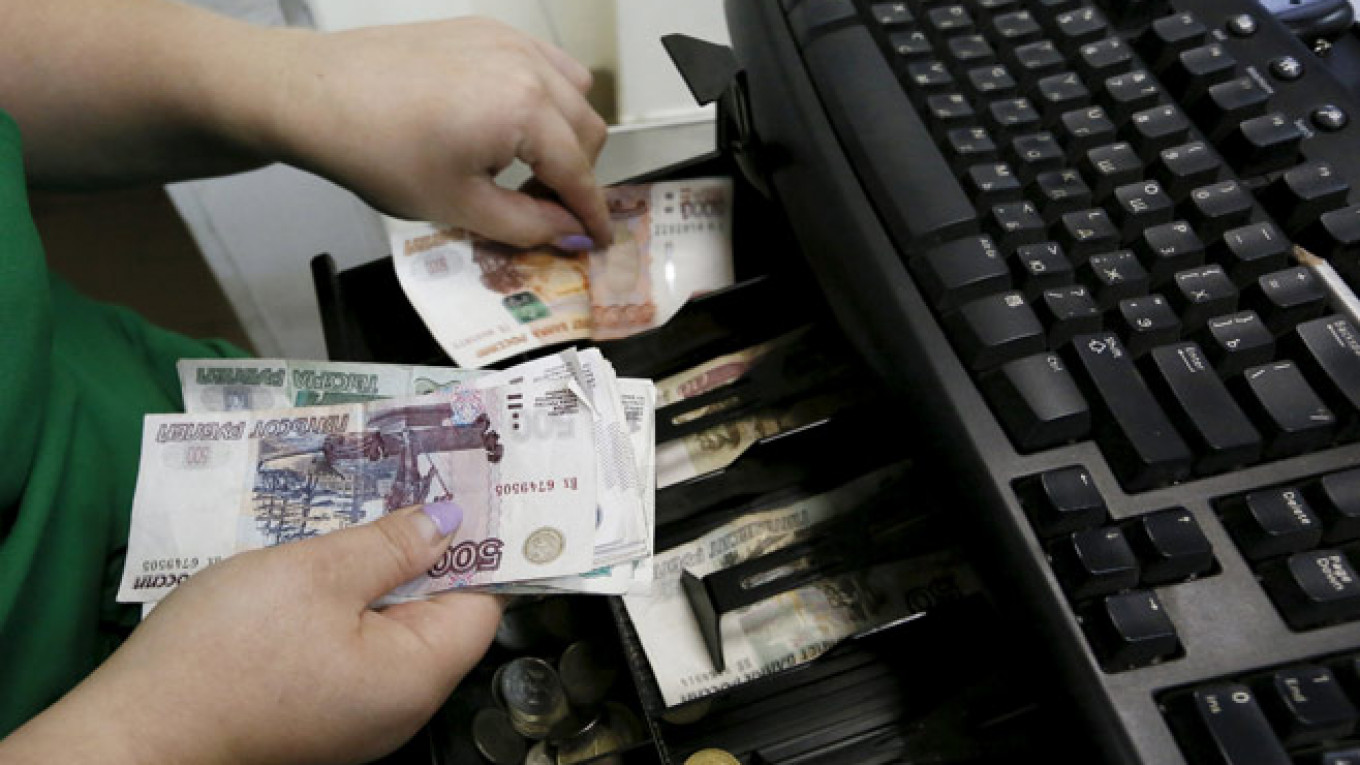The Russian currency sank to its lowest level since February on Thursday, extending a recent rout as the price of crude oil fell below $48 a barrel and appeared to be heading for a 2015 bottom.
The ruble tumbled 2 percent against the U.S. dollar to 64.6 in the early evening, bringing its decline against the greenback over the last fortnight to 11.3 percent. The currency dropped past the milestones of 70 against the euro and 100 against the British pound during morning trading.
The ruble's run of weakness in recent weeks has sparked memories of its dramatic rout last year when it crashed to historic lows because of a falling oil price and Western sanctions on Moscow.
A lower oil price appeared to weigh heavily on the Russian currency with the cost of a barrel of the benchmark Brent crude declining to a six-month low of $48.80.
"The ruble is still lagging oil, making its performance highly sensitive to Brent's bearish trend," analysts from Sberbank CIB said in a note to investors Thursday.
Data releases in the United States showing a bigger than expected build in fuel stockpiles also depressed oil and the Russian currency.
"For the moment the external environment is difficult for the ruble," ING Bank's chief Russian economist, Dmitry Polevoi, wrote in a note to investors Thursday.
In a sign of concern over the ruble, Russia's Central Bank halted purchases of foreign currency — it had previously been buying up to $200 million a day on currency markets — early last week, and indicated that the freeze could be extended for months.
But the Central Bank, which introduced a free floating ruble last year, is also worried about economic growth and cut interest rates by 0.5 percent to 11 percent last Friday despite jitters over the ruble.
Contact the author at h.amos@imedia.ru
A Message from The Moscow Times:
Dear readers,
We are facing unprecedented challenges. Russia's Prosecutor General's Office has designated The Moscow Times as an "undesirable" organization, criminalizing our work and putting our staff at risk of prosecution. This follows our earlier unjust labeling as a "foreign agent."
These actions are direct attempts to silence independent journalism in Russia. The authorities claim our work "discredits the decisions of the Russian leadership." We see things differently: we strive to provide accurate, unbiased reporting on Russia.
We, the journalists of The Moscow Times, refuse to be silenced. But to continue our work, we need your help.
Your support, no matter how small, makes a world of difference. If you can, please support us monthly starting from just $2. It's quick to set up, and every contribution makes a significant impact.
By supporting The Moscow Times, you're defending open, independent journalism in the face of repression. Thank you for standing with us.
Remind me later.







